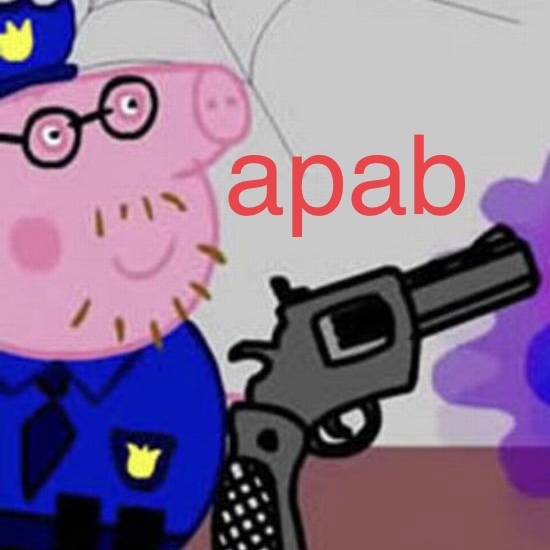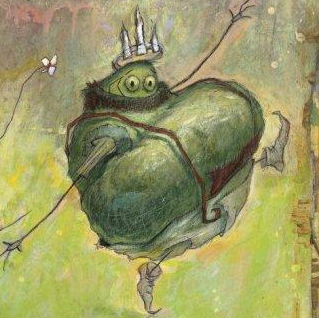Does this fall under sectarianism? IMO this is a “Reality Check”
Consider this post a “testing the waters” type on the sectarianism part xdddddddd
Can’t be sectarian if everyone’s being mocked equally
It’s also not saying that those groups are bad, just that they need to focus less on idealism and theory. Something we all basically agree on now. Can’t have a workers party without organized workers.
Another thing that’s massively changed over the past 100 years is that worker orgs are not reliant on petty bourgeois/bourgeois “intellectual” class traitors anymore. The working classes of all countries now have natural intellectuals coming from their ranks thanks to literacy, education, and access to information that was once impossible for people who had to spend all day working.
You don’t need people who only read about working class experience leading thought for working class organization, you have plenty of well educated and informed people who actually are working class.
Very well said.
We just out here, having a good time, having our “point at the sky party”, and you come out here and tell us to stop? SMH my head.
tag yourself I’m sky pilots
✈🏢🏢
:eleven-nine:
I’m the anarchist’s bow-tie
“anarchist”
bow-tie
An-cap detected.
not just any bowtie either. one of them kentucky fried boss hogg bowties
[pulling suspenders-ly] “Now I may not be one of them slick big city anarchists”
Chances of this anarchist’s surname being “Long” is approx 120% due to inbreeding.
Im the planet Saturn
Ah yes, the famously non-idealistic IWW.
This is Debs Era
Even in Debs era, the lack on general economics theory understanding is what held the IWW back more than anything else. What they saw as ‘star gazing’ is in fact the very difficult work of prognosticating the development of capitalism, an equally important task that without it leaves a movement directionless, easily guided by the capitalists hand.
They were idealists in the firm sense of the word, with most of the core leadership post 1930’s (including Ralph Chaplin, the writer of ‘Solidarity Forever’) breaking off and eventually turning towards the idea that the ‘real workers’, i.e. the workers who made up base material extraction (mostly itinerant lumber workers, miners, farm laborers) were the only workers worth organizing, with all other workers being ‘parasites’ on the ‘true working class’. While we can see strains of this in modern-day first world Maoist rhetoric, theirs is at least first informed by a colonial historical analysis, and an understanding of the modern economy.
The Wobblies are a cautionary tale of another sort. Praxis without a bedrock of historical or economic theory, leading to the eventuality of reactionary libertarian chauvinism in any significantly large first world workers movement.
I’m not saying that the communists of the era were any better mind. It’s just that pretending that the Wobblies weren’t also doing their version of stargazing (or more metaphorically, they were staring at the dirt instead of the sky) is sectarian bullshit. The communists at least got some states off the ground (for as short of a time they existed), the Wobblies paved the way for the imperialist trade-unionism. The communists divined the future from the stars far more clearly, though if by fortune or science, who can say, even if they were equally powerless to stop it.
I also don’t wanna be sectarian, but if we’re gauging things based on when this comic was illustrated, at least the American anarchists back then sometimes took rich people hostage or would shoot them. The only Wobbly violence I’m aware of is that some of their members were associated with the coal wars, and that’s pretty cool though honestly. I say this stuff as a card carrying IWW member.
Do anarchists claim Leon Czolgosz? He was a self described anarchist and he shot president William McKinley with a revolver hidden in a napkin. Dude shot the president by just walking straight up to him.
I’d classify those as mostly adventurism, not praxis. Violence is not inherently praxis unless it is to defend the continuation of a movement. And even violence that is praxis isn’t always ‘correct praxis’.
IWW theory at the time was generally speaking ‘dual-power’ around the ability to conduct a general strike. Giving them the benefit of the doubt, and their historical relationship to the coal wars, I would assume that eventually it would have required arming the working class. That said, what really killed the Wobblies was the New Deal jobs program and WWII. It is difficult to organize when your main political class (itinerant workers) is swallowed up by either conscription or mandatory employment. You can see the ideological split occur within the leadership of the era, with some seeing this as a working class victory and eager to collaborate with a government that finally seemed to be listening to their demands, or decriers who saw the New Deal as Leninist-collaborationism (referring to the coal wars, Kronstadt soldiers revolt, anarchist purges and the alliance with the USSR). It was a combination of this lack of a real political constituency, indecision by leadership, the rise of new deal consumerism/prosperity, domination of trade-unionism, and the crushing of independent newspapers by capital-intensive Cold-War era mass media that signaled the death knell of the I.W.W. as a relevant political organization in the U.S.
It’s not that their rejection of theory killed them, their rejection of theory just helped create the inability to adapt to a rapidly changing political-economy. Not that the American communists (nor the inheritors of the USSR) faired much better.
I assume there are online anarchists who claim Czolgosz, but I’ve never met an irl anarchist who cared enough to speak on the matter.
That indecision you mention has got to be one of the greatest barriers to leftist organizing in all of American history. It always appears to stop stuff getting off the ground before it goes anywhere. It impacted the wobblies, the Black Panthers, even now it’s like no one is sure what to do
That’s got to be a material result of Americans not feeling constrained enough. It’s hard to get people to care or stick around if they can just get on a bus and find better conditions in a different state. Just move, just find a new job, just leave America entirely if you’re so upset. I know packing up and leaving isn’t a real possibility for most people, but that dream of it permeates everything
I know packing up and leaving isn’t a real possibility for most people, but that dream of it permeates everything
This reminds me of Stalin discussing how a shop-owner-turned-worker may have the material conditions of a worker, but still lack proletarian consciousness because their plan is to save up enough money to open the shop again. It’s only when they realize that they make barely enough to survive and they give up on once again gaining some bourgeois character that they can instead gain a proletarian consciousness.
I know so many people who would never dream of falling into the hustle culture trap, but are constantly dreaming of leaving the country or of homesteading and going off the grid. And maybe some of them could actually escape. But it does very little for those of us who can’t escape and know it.
deleted by creator
All fair points, I’ll stand by my point that now it doesn’t really count as sectarianism unless you’re actively trying to judge current organizations by this old political cartoon. The message of organizing is basically just a way of calling for praxis and that’s fine.
Fair enough. I could care less if it is ‘sectarian’ or not, or even how well it applies in a modern context*, I just think it is important to know, understand, and be clear-eyed about what the successes and failures of past movements are.
*Imo in the west neither our prognostication nor our praxis is nearly as historically well developed as any of the parties indicated here, there is very little actual ideological sectarianism, only personal grievances to make us feel as if we are walking in the footsteps of our predecessors, when in reality we have barely crossed a single heel-print in the footsteps of the giants that came before us.
Exactly, we’re not in a position to apply any of the conflicts of our predecessors yet. This version of sectarianism is also so outdated that it’s just history at this point as the organizations involved have evolved drastically over the past 100 years.
So we can’t draw conclusions about the ideological stances of the modern iterations of these groups from it anymore. Meaning that it’s now just a message calling for people to organize, even if at the time it’s message was sectarian and claiming some sort of superiority of a specific way of thought.
I would say it still is more than a message to organize, in that it highlights still very relevant lessons about the IWW and adventurism
the workers who made up base material extraction (mostly itinerant lumber workers, miners, farm laborers) were the only workers worth organizing, with all other workers being ‘parasites’ on the ‘true working class’
retail workers are not parasites and are usually more oppressed than fishermen/etc, but the industry they work for is inherently more parasitic IMO
all companies are parasitic but the industry of selling cheap coffee for $15 because the stressed urbanite can’t afford 2 minutes to make their own lest they get fired from their bullshit office job is something that I can’t see existing under a utopian socialist economy. Cutting down trees and farm work, on the other hand will always be necessary
IMO socialism inherently requires some type of sacrifice, and sacrifices like “not having a barista” and “not being able to get the exact type of chocolate I want” are fine and good. TBH I think that even private property should be eventually done away with and substituted with rotational living; I think people would be much happier living in a few different houses across their life that they don’t own
I don’t necessarily disagree, I’ve deliberately attached myself to the manufacturing economy for a reason. Regardless of if they actually want to fund it well or not, it will always be necessary. That said, you really need to read their works over time to understand how reactionary of a turn this was for certain individuals. I’d almost say there was a ‘syndicalist to libertarian’ pipeline much in the same way that there was a ‘Trotskyite to neo-conservative’ pipeline at a later date.
Unironically this illustrates my feelings against the “cosmic wonder” type of thing that you hear from science documentary hosts like Sagan and Tyson…“we’re star stuff” cool but most of us are laboring to survive and have no time to appreciate that fact.
Even then it’s not particularly significant that that eg. a star died to produce the atoms in our body, there are sextillions of them out there. It’s like being shocked about rolling dice and getting a 2 specifically.
deleted by creator
there is bad reddit energy off it to be certain
this pic is truer in 2023 than it was in the 1910swhatever when it was drawn
Communist guy would be a good emoji
I’d say yes, but it’s kinda funny so it’s a pass
 just organize lol
just organize lolThe wobblies and syndicalists etc had this sort of cult of action. They distrusted party politics, feeling that any change would come from and on the factory floor. It makes sense why they deemed electoralism in most countries a waste of time, but they often threw out forming real discipline and developing a theory of change. Essentially look at the errors of De Leonism which was also party if the IWW, even they disagreed with the IWW’s anti-party stance.
Scotland’s great trade unionist, early compatriot to the IWW, and eventual head of the Communist Party of Great Britain Willie Gallacher covers the issues with these strategies really well in his autobiography of the WW1 era "Revolt on the Clyde" especially when he went to the Comintern and met Lenin. He talks about how Lenin changed his politics and made him self-crit.
With little delay I got to Moscow and was soon engaged in discussions which completely altered my views on revolutionary politics.
But this change did not take place in any easy manner. At that time the shop stewards’ movement was still comparatively strong and I had little regard for parties and still less regard for parliament and parliamentarians. I was an outstanding example of the “Left” sectarian and as such had been referred to by Lenin in his book Left-Wing Communism an Infantile Disorder .
But here I was In the company of Lenin himself and other leading international figures, arguing and fighting on the correctness or otherwise of these views. I was hard to convince. I had such disgust at the leaders of the Labour Party and their shameless servility that I wanted to keep clear of contamination.
Gradually, as the discussions went on, I began to see the weakness of my position. More and more the clear simple arguments and explanations of Lenin impressed themselves in my mind. When I got back to Glasgow I tried to give the comrades some idea of how I felt when talking- with Lenin. I had never had such an experience with anyone before. Here was a man on whom the eyes of the world were turned. A man who was making history, great history, yet simple, unaffected, a true comrade in the deepest meaning of the word. Not for a moment could I dream of talking about him — to him. I couldn’t even think of him when he was talking to me. The remarkable thing about Lenin was the complete subordination of self. His whole mind, his whole being, was centred in the revolution. So when I spoke to Lenin. I had to think not of him, but of what he was thinking — about the revolutionary struggle of the workers.
Occasionally in the discussions taking place in the various Commissions Lenin would scribble a note clearing up a particular point and pass it to this or that comrade. One evening in the hotel I was commenting on the caustic character of such a note he had passed and how certain people would go red in the face if they had seen it. ‘‘Where is it ?” asked J. S. Clarke.
“I tore it up," I replied.
“What ” he exclaimed. “You tore up a note in Lenin’s handwriting ?”
“Yes,” I said, “I have torn up several. I always tear up whatever notes I have at the end of a sitting.”
‘'If you get another, keep it and give it to me,” said Clarke.
The next day I happened to make a heated reference to the criticism in Left-Wing Communism and Lenin passed me a note which read : “When I wrote my little book I did not know you.” I kept that one but gave it to Clarke. He now writes fantastic stories about his relations with Lenin
The more I talked with Lenin and the other comrades, the more I came to see what the party of the workers meant in the revolutionary struggle It was in this, the conception of the party, that the genius of Lenin had expressed itself. A Party of revolutionary workers, with its roots in the factories and in the streets, winning the Trade Unions and the Co-operatives with the correctness of its working-class policy, a party with no other interests but the interests of the working class and the peasant and petty-bourgeois allies of the working class, such a Party, using every avenue of expression, could make an exceptionally valuable parliamentary platform for arousing the great masses of workers to energetic struggle against the capitalist enemy.
Before I left Moscow I had an interview with Lenin during which he asked me three questions.
“Do you admit you were wrong on the question of Parliament and affiliations to the Labour Party ?'*
“Will you join the Communist Party of Great Britain when you return ?'* (telegram had arrived a couple of days before, informing us of the formation of the Party.)
"Will you do your best to persuade your Scottish comrades to join it ?”
To each of these questions I answered “yes.** Having given this pledge freely I returned to Glasgow.
On arrival I heard of a conference that had been held two weeks previously, when the question had been discussed of forming a Scottish Communist Party-, compounded of the sectarians of the S.L. P., the shop stewards and the Scottish nationalism of the group round John McLean I also heard that a further conference was to take place on the Saturday following my return, to elect an Executive Committee and to launch the Communist Party officially.
I highly recommend the book, its a short read and while about very specific strikes and shenanigans and interactions, the heart of it genuinely helped me understand the strengths and weaknesses of even a strong union movement like that one in Scotland at the time. Pure unionism does not have revolutionary potential, it is the breeding group for cadres, not the other way around.
deleted by creator
I wouldn’t use Lenin as a source on trade unionism Russia never really had any before the revolution so it’s not a subject he had much experience on
deleted by creator
deleted by creator

















